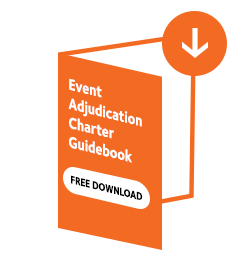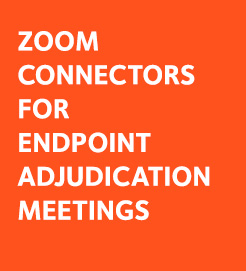Clinical Adjudication Committees increase the quality and integrity of clinical trial data and are highly valuable in circumstances where there is a need for an independent, accurate, consistent, and standardized assessment of study events. Clinical teams should be scrupulous when recruiting, training, and managing a Clinical Adjudication Committee. Here’s the top three considerations to have in mind when establishing such committee.
Clinical Adjudication Committees (CAC) - also referred to as Clinical Event Committees (CEC), Clinical Endpoint Committees (CEC) and Endpoint Adjudication Committees (EAC) are typically made up of three or more experts who perform a blinded review of clinical endpoints or suspected adverse events. The adjudication process allows a standardized assessment of the study endpoints and reduces potential bias and variability of assessments made by clinical investigators who are heavily involved in the study. The clinical team must be very scrupulous in the selection, training and management of the Clinical Adjudication Committee. In particular, it is essential to ensure that all Clinical Adjudication Committee members clearly understand their responsibilities from the onset of the adjudication process.
1. Responsibilities of a Clinical Adjudication Committee Members and Chairperson
During the clinical adjudication process, Clinical Adjudication Committee members are called to independently adjudicate complex clinical events in a blinded and timely manner. Involving the Clinical Adjudication Committee members early on in the definition of the adjudication process allows to anticipate major difficulties before the start of the study.
The Committee Chairperson (and sometimes other members) offers valuable expert advice to the sponsor on topics such as endpoint definition and data requirements, especially if the nature of the assessed endpoints is outside of the area of expertise of the study (e.g.: adjudication of cardiovascular adverse events in a diabetes study).
Each study obeys a specific adjudication process, and an electronic adjudication system must be set-up to support process adherence. Such system must facilitate the submission of the necessary source documents to committee members, guide the review steps and record the reviewers’ assessment. If the adjudicators (also called ‘reviewers’) do not achieve consensus or if the required majority is not obtained on a given event assessment, the disagreement must either be resolved by a tie-braker or discussed in a consensus meeting before the final answer can be validated in the system.
The chairperson usually has the additional responsibility to oversee the adjudication process and report to the sponsor on behalf of the other members if a difficulty arises.
2. Setting up a Clinical Adjudication Committee
The selection and training of Clinical Adjudication Committee members are two early steps in establishing the committee. Three or more independent physicians with expertise in the relevant therapeutic area and with previous clinical research experience will have to be contracted. It is advised to allow sufficient time for the contracts to go through the legal review process. Clinical teams should keep in mind that renowned expert may have difficulty finding time for the assessment of events, and for attending meetings with the sponsor and the other committee members. Therefore, in long studies and studies with many events, sponsors should aim to contract enough reviewers who will be able to supplement one another in time-critical situations such as interim analyses and database lock.
The training of the Clinical Adjudication Committee members can take place during a “kick-off” meeting, preferably around the time of the adjudication charter signature and when the clinical team is ready to start the adjudication. During the meeting, endpoints definitions and adjudication questions can be discussed, and the software vendor will show how to view the source documents, request additional data and fill out the adjudication forms, if possible using “real-life” examples. An intuitive and user-friendly online adjudication system will help get the most out of the limited time of adjudicators.
3. Managing a Clinical Adjudication Committee
The adjudication software vendor plays an important role in the management of the Clinical Adjudication Committee. A very useful feature of electronic systems is the ability to measure the inter- and intra- variability in the committee’s assessments. If such feature is available, the vendor will alert the sponsor if the variability exceeds predefined levels, and additional training, usually involving the Chairperson, will be necessary. The adjudication coordinator also plays a crucial role, by monitoring reviewers’ workload and balancing the assignments in order to keep a steady flow. Additionally, if the workload is expected to increase or if timelines are to be shortened before key study milestones, the sponsor should remember to give sufficient notice to all parties involved, adjudicators, coordinator, and software vendor.
Finally, the Clinical Adjudication Committee members should be fairly and reasonably paid for their time spent adjudicating events and the expertise provided. A “Fair-Market Value” must be calculated taking into consideration the country of residence, the international, regional or local reputation, and the medical specialty of the expert.
Clinical Adjudication Committee Composition and Disagreement Management
Clinical Adjudication Committees most commonly have two reviewers and a chairman, but the configuration can differ between studies. The number of committee members and committee composition impact the way disagreements are managed. Below are three examples but many other configurations exist.Clinical Adjudication Committee composed of 2 reviewers and a Chair
The two reviewers can try to solve the disagreement at a meeting. In case an agreement cannot be reached, the Chair makes the final decision.
Clinical Adjudication Committee composed of 3 reviewers, one of them is also the Chair
In this case, the outcome is achieved with the majority of two. In case of complete disagreement between the three reviewers, either the Chair’s assessment precedes over the other two reviewers’, or a consensus meeting takes place to try to resolve the disagreement. In case an agreement cannot be reached, the Chair makes the final decision.
Clinical Adjudication Committee with more than 3 reviewers
It is rare that over three reviewers are asked to adjudicate a case. The configuration will usually be one of the above, but the coordinator will select two or three reviewers for each case according to predefined criteria such as availability or number of cases to assess in a given timeline.
DOWNLOAD NOW THE FREE ENDPOINT ADJUDICATION HANDBOOK
The Complete Manual / Reference Book (34 pages) with all the topics related to the Independent Endpoint Adjudication Committees Management








